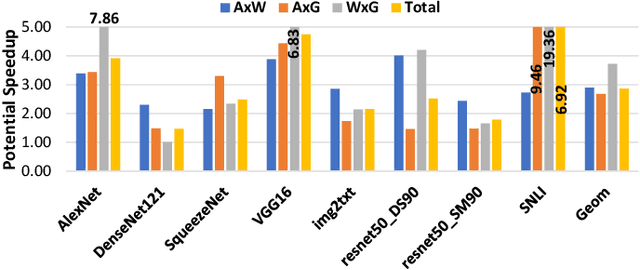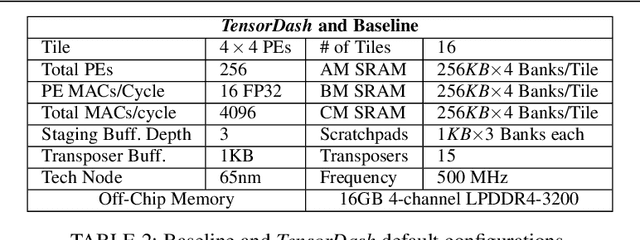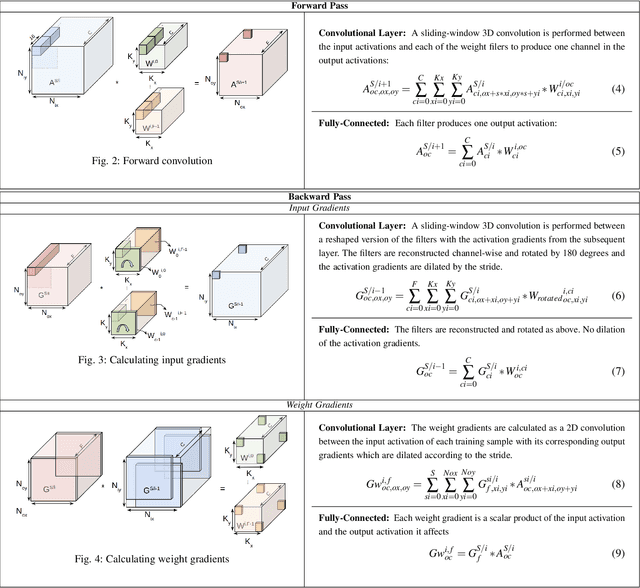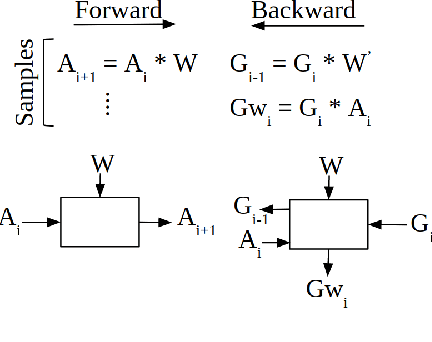TensorDash: Exploiting Sparsity to Accelerate Deep Neural Network Training and Inference
Paper and Code
Sep 01, 2020



TensorDash is a hardware level technique for enabling data-parallel MAC units to take advantage of sparsity in their input operand streams. When used to compose a hardware accelerator for deep learning, TensorDash can speedup the training process while also increasing energy efficiency. TensorDash combines a low-cost, sparse input operand interconnect comprising an 8-input multiplexer per multiplier input, with an area-efficient hardware scheduler. While the interconnect allows a very limited set of movements per operand, the scheduler can effectively extract sparsity when it is present in the activations, weights or gradients of neural networks. Over a wide set of models covering various applications, TensorDash accelerates the training process by $1.95{\times}$ while being $1.89\times$ more energy-efficient, $1.6\times$ more energy efficient when taking on-chip and off-chip memory accesses into account. While TensorDash works with any datatype, we demonstrate it with both single-precision floating-point units and bfloat16.
 Add to Chrome
Add to Chrome Add to Firefox
Add to Firefox Add to Edge
Add to Edge